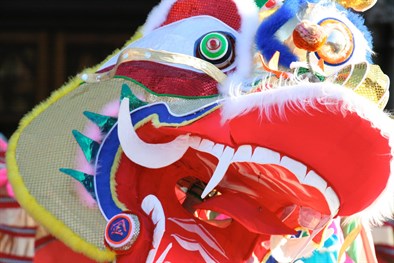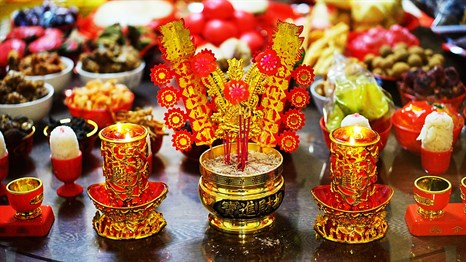The Symbolism of Chinese New Year Foods
The Chinese New Year is the most important holiday in Taiwan and it falls on January 28th this year. It is the time when families get together and celebrate. The New Year’s Eve dinner is usually the most bountiful one, and just like other holidays around the world, food plays an essential role in the celebration. The dinner table is filled with delicious dishes, each one carrying important symbolism.
Dumplings
The shape of dumplings is similar to the shape of ancient money; the gold ingot. Eating dumplings means that good fortune and wealth will come to the family.

Hot Pot
We call the New Year’s Eve dinner “圍爐 (Wei Lu),” which literally means that everyone gathers around the pot. Traditionally, people will put a fire stove under the table when having the New Year’s Eve dinner. Nowadays we put a hot pot, a traditional type of stew, on the dinner table. There is no better way to celebrate the New Year than having hot pot on a cold winter’s day with beloved family. The boiling hot pot symbolizes a prosperous new year.
Fish
The pronunciation of fish (yu) is the same as the pronunciation of abundance or surplus. Therefore, eating fish is a way to wish everyone an abundant year! However, the fish course cannot to be fully finished. The leftover fish serves as a symbol of surplus. We say “年年有餘 (nian nian you yu ),” which means every year we hope for a surplus.
Chicken
Chicken and family in Taiwanese are homonyms. Having a whole chicken on the dinner table is a symbol of having the whole family together. Also, the pronunciation of “吃雞 (chiah ke),” which means “eat chicken” is similar to the pronunciation of “起家 (khi ke,)” which means “start a family.”
Meat
In ancient times, any type of meat was extremely precious and would only be served at New Year’s Eve dinner. Meat is always a “must have” at the New Year’s Eve dinner. Furthermore, pig(豬) has the same pronunciation as all(諸) in Chinese – zhu. Eating pork symbolize “諸事大吉 (zhu shi da ji),” which means everything will be a success!

Rice Cake
We call rice cake “年糕 (nian gao)” in Chinese, which means New Year’s cake. “糕(cake)” and “高 (high)” share the same pronunciation. Eating rice cake symbolizes that each year you will achieve higher. We also say “步步高升 (bu bu gao sheng),” which mean step by step you will get higher, to wish people advancement in their career, studies or life.
Radish/Radish Cake
Radish in Taiwanese “菜頭(cai tou)” sounds the same as “彩頭(cǎi tóu),” which means good fortune. Serving radish or radish cake to the family is a way of wishing them luck for the upcoming year.
Leek and Long Year Vegetable
Vegetables cannot be missed at the dinner table. Leek (jiu cai) and mustard greens (we call them long year vegetables) symbolize “長長久久 (chang chang jiu jiu).” “長長久久” means a very, very long time; wishing people longevity. When eating the long year vegetables, you are supposed to finish the vegetables in one bite, because the vegetables represent your life and you don’t want to cut if off.
Summary
It can take hours to eat the New Year’s Eve dinner. People say that one must take time to enjoy the food at the dinner, because it also shows how you cherish all the good memories you have for the previous year. And then tomorrow, it will be a new year and a new adventure begins again!
Happy Chinese New Year!
